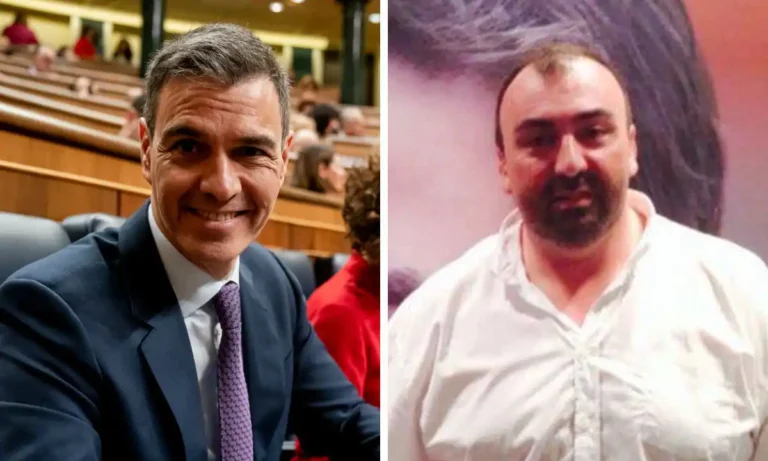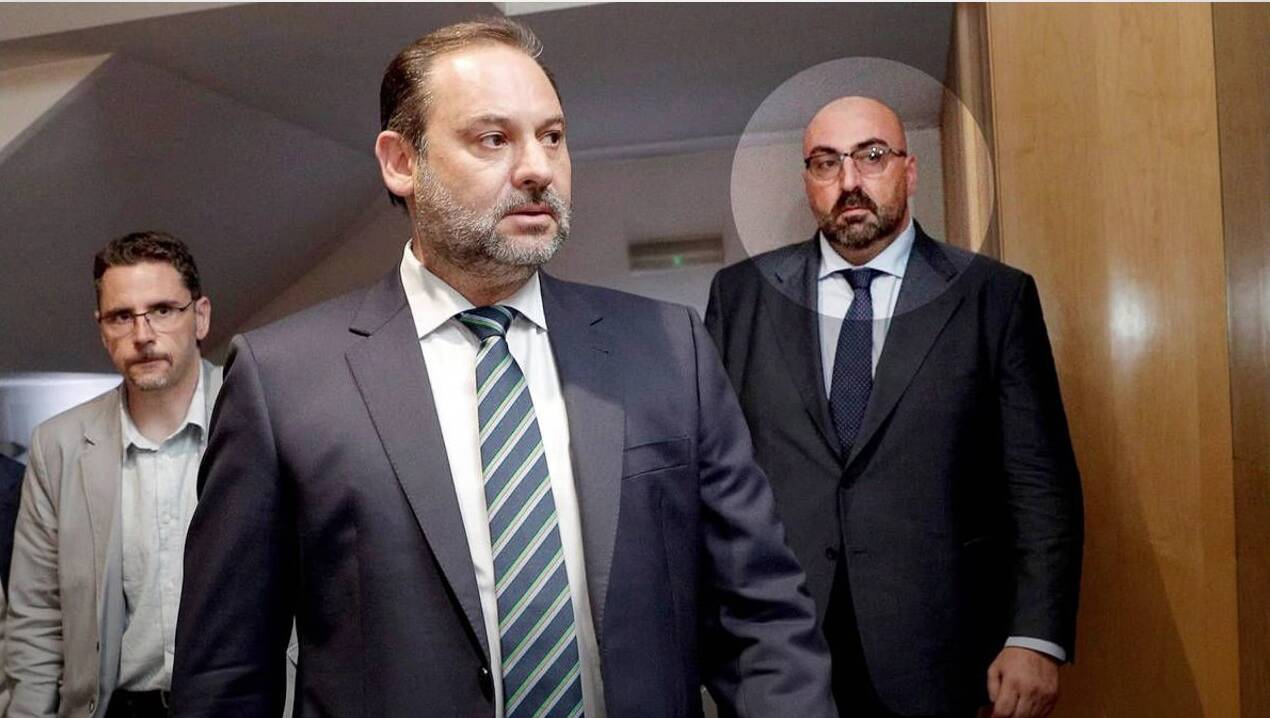The Koldo case, or the serious suspicions of corruption that shake Sancher’s socialist government in Spain

Between the end of February and the first week of March, the Koldo, or Kolod-Abelo, scandal heated up, and this put Pedro Sanchez's socialist government in considerable turmoil. The Koldo or Ábalos case, depending on what you want to call it, has become the main thorn in Pedro Sánchez's side this week .
Since the scandal broke out over the alleged illegal commissions pocketed by Koldo García, former advisor to José Luís Ábalos at the Ministry of Transport, the repercussions of the conspiracy have expanded and have affected more and more people, at least on a political level and in the form of suspicion .
A scandal that starts from the health crisis
The health emergency caused by Covid has led the Canary Islands government, like others, to accelerate the purchase of medical supplies. When the pandemic broke out, the archipelago had just 40,000 FPP2 masks in stock, enough for up to a month and a half. As a result, €81.9 million was disbursed directly and without following public practices, based on the emergency procurement rules in force at the time. Of these purchases, closed with around twenty suppliers, three ended up under judicial examination. “Of the 82 million euros allocated for the purchase of medical supplies, 39.3 million euros are immersed in approximately three judicial investigations,” denounced on Wednesday the current Vice Minister of the Presidency and spokesperson of the Executive, Alfonso Cabello (Coalition of the Canary Islands), demanding “strong” explanations. Sources from the previous Government claim that "the Government of the Canary Islands is only guilty of having purchased masks when there was a brutal shortage, when the logistical corridors were totally blocked, in a region with particular connectivity problems".
The Koldo case
The Government of the Canary Islands chaired by the current Minister of Territorial Policy and Democratic Memory, Ángel Víctor Torres (PSOE), paid approximately 12.3 million euros in April 2020 in three separate operations for 5.3 million masks for the alleged bribery scheme in the buying and selling of masks.
At the center is the company Soluciones de Gestión y Apoyo a las Empresas SL, and Koldo Garcia, assistant to the Minister of Transport Abalos and a man very close to Prime Minister Pedro Sanchez, who defined him as a real “Voting Machine ” . Koldo Garcia would have been at the center of the scandal or by sending the company under accusation confidential information that would have allowed it to win the emergency tenders for the masks. For this reason the scandal became the Koldo scandal, a very well-known figure, also an advisor to RENFE and the Spanish port system, even if the affair then involves many other figures. Koldo allegedly received 1.5 million euros in bribes as a reward for his work.
Sources from the former Executive, still a socialist led by Sanchez like the current one, defend the operation by stating that it was carried out because the company used by the network (Soluciones de Gestión y Apoyo a las Empresas SL) offered advantageous conditions: it ensured delivery on day after signing for a market-priced product, did not require money up front and only provided money after validation of the material. And this, with the guarantee of having previously worked with the Ministry of Public Works. The European Public Prosecutor's Office, however, has placed these contracts – and those of the Balearic Islands – under investigation as they were paid for with money from EU funds.
The company, according to sources, contacted the then head of the Canary Islands Health Service (SCS), Antonio Olivera – currently head of the Ministry's cabinet under Torres – via email. Torres has publicly assured that the Executive has never dealt with Koldo García. In it, the company offered five million FFP2 masks. “This proposal was automatically transferred, as was customary at the time, to the Directorate General of Economic Resources, and was processed scrupulously following the established technical requirements and guidelines.”
The Government of the Canary Islands placed three orders with Soluciones de Gestión y Apoyo a las Empresas: one for 2.75 million masks at a total price of 6.87 million euros; another for 1.91 million FFP2/K95 masks for 4.78 million and a third for five million for two million masks. The first order masks, however, caused a similar problem to the one faced by the Balearic government: they “did not meet the contractual quality” and lacked the validation certificate of European standards.
Some of the masks, over 800 thousand, did not even meet the FFP2 standards and the Soluciones de Gestión y Apoyo company still managed to trim them, indeed it even increased the order by granting a discount on unsuitable masks.
Now the scandal has erupted and the President of the Canary Islands, Fernando Clavijo (Coalition of the Canary Islands), declared on Wednesday that his Government is gathering as much information as possible from the Ministry of Health and the General Chancellery.
Tax fraud
The great thing is that it's not just the payment of alleged bribes. At the end of February, the Court of Education number 5 of Las Palmas admitted the complaint of the Provincial Prosecutor's Office against four businessmen who allegedly defrauded the tax authorities of part of the profits obtained by two companies based in Madrid for the sale of masks to the Service Healthcare of the Canary Islands worth 22.9 million euros. Among those accused are the current president and owner of Unión Deportiva Las Palmas, Miguel Ángel Ramírez, and Lucas Bravo de Laguna, former mayor of the Municipality of Santa Brígida and former councilor of the Cabildo de Gran Canaria during his time in the PP (1999 -2017), and former deputy of Unidos por Gran Canaria (2019-2023).
The Provincial Prosecutor's Office of Las Palmas accuses them of the crimes of embezzlement and money laundering, deriving from a "substantial" and unjustified income obtained from the sale of medical equipment. According to the Ministry, two Madrid companies, duly registered, sold the products to the Government of the island between 2020 and 2021. The first of these companies, Damco, invoiced SCS 15.89 million euros in 2020 and others and 2.78 million in 2021. Tanoja Services, for its part, earned 4.23 million euros in 2021 for its sales to the public body.
So far, so good. Of this sum, 9.1 million ended up in the pockets of the accused, who the prosecution considers simple intermediaries. Miguel Ángel Ramírez would have deposited this sum in his company Tabaiba (without any activity in the years preceding the pandemic), and would have shared these profits with the company of Lucas Bravo de Laguna, which received between 2020 and 2021 more than 2, 3 million euros. These profits of Bravo de Laguna and Ramírez were declared to the tax authorities under the RIC, a Canary Islands tax incentive that allows up to 90% of net profits to be exempt from taxation, according to the Prosecutor's Office. “They hid high incomes that were not due to the development of an economic activity, but to the personal contacts of Miguel Ángel Ramírez and Lucas Bravo,” reads the complaint admitted to the trial by the judge.
This Tuesday, the Prosecutor's Office again requested another six years in prison for Ramírez for an alleged Social Security fraud committed by two private security companies that, in his opinion, he controlled through trusted people. The public prosecutor points out that the businessman avoided paying the contributions of the workers of the companies Sinergias de Vigilancia y Seguridad and Novo Segur Seguridad Privada (formerly called Marseguer) for 791,572 euros, according to the Canarias 7 newspaper.
Ramírez was acquitted late last year of committing social security fraud through the company Seguridad Integral Canaria between 2014 and 2016. The provincial court concluded in November that there is no evidence to accredit that during that phase he was the "de facto director" of the company and, therefore, responsible for the alleged fraudulent practices.
the case of masks
In May 2022, the Las Palmas Anti-Corruption Prosecutor's Office announced an investigation targeting, once again, the Canary Islands Health Service. The islands' health system had paid four million to a vehicle purchasing company, RR7 United SL, for an order of one million face masks that never arrived. The case led to the indictment of the former director of the SCS, Conrado Domínguez, for the crimes of prevarication and influence peddling. Domínguez resigned from his post in November 2022, and last year found himself embroiled in the Mediador case.
The money remains untraceable and the European Public Prosecutor's Office has taken over the case, which is still ongoing. In December, the Court of Auditors provisionally closed the case, while recognizing the damage to public coffers. The body said the Canarian Health Service has started the procedure to recover the money.
The Prosecutor's Office found several serious irregularities in the operation which, unlike what happened months earlier with the company used in the alleged Koldo case, allowed four million euros to be paid in advance to a company with no experience in the sector. His investigations reconstruct how businessmen allegedly established relationships with the head of the SCS, and he even claims that days earlier he had rejected offers from companies offering FFP2 masks with immediate availability, because “there were already acceptable quantities for several months."
Despite this, the contract was terminated and RR7 attempted to import a consignment of one million 3M masks from Ethiopia, which turned out to be counterfeit. They were intercepted and destroyed by customs. In June 2021, the Canarian Health Service recovered the contract, which had already been terminated in February for non-compliance, and gave it a second opportunity to exchange the supply of one million masks for 1.2 million units of branded FFP3 and different model. This second shipment also did not arrive.
The owner of the company, Rayco Rubén González, used, according to the prosecutor, “a corporate structure based in Las Palmas de Gran Canaria, established with the companies of his direct relatives, to channel the illicit flows of money obtained from the Health Service Canario through the previous commission of a criminal activity (fraud)”. Part of the money was allegedly invested in three Lamborghini cars, a Bentley Bentayga and a Mercedes Benz. A nice way to settle the money coming from what, evidently, seems like a real scam against the Spanish state and the Canary Islands.
A light on the socialist undergrowth that makes the government tremble
This great scandal shakes the socialist government, already weakened by the controversy for having taken on board the Catalan independentists, judged as anti-Spanish and even pro-Russian. These tax and corruption scandals only make Sanchez's position even more delicate.

Thanks to our Telegram channel you can stay updated on the publication of new Economic Scenarios articles.
The article The Koldo case, or the serious suspicions of corruption shaking Sancher's socialist government in Spain comes from Economic Scenarios .
This is a machine translation of a post published on Scenari Economici at the URL https://scenarieconomici.it/il-caso-koldo-ovvero-i-gravi-sospetti-di-corruzione-che-scuotono-il-governo-socialista-di-sancher-in-spagna/ on Mon, 11 Mar 2024 09:00:20 +0000.

